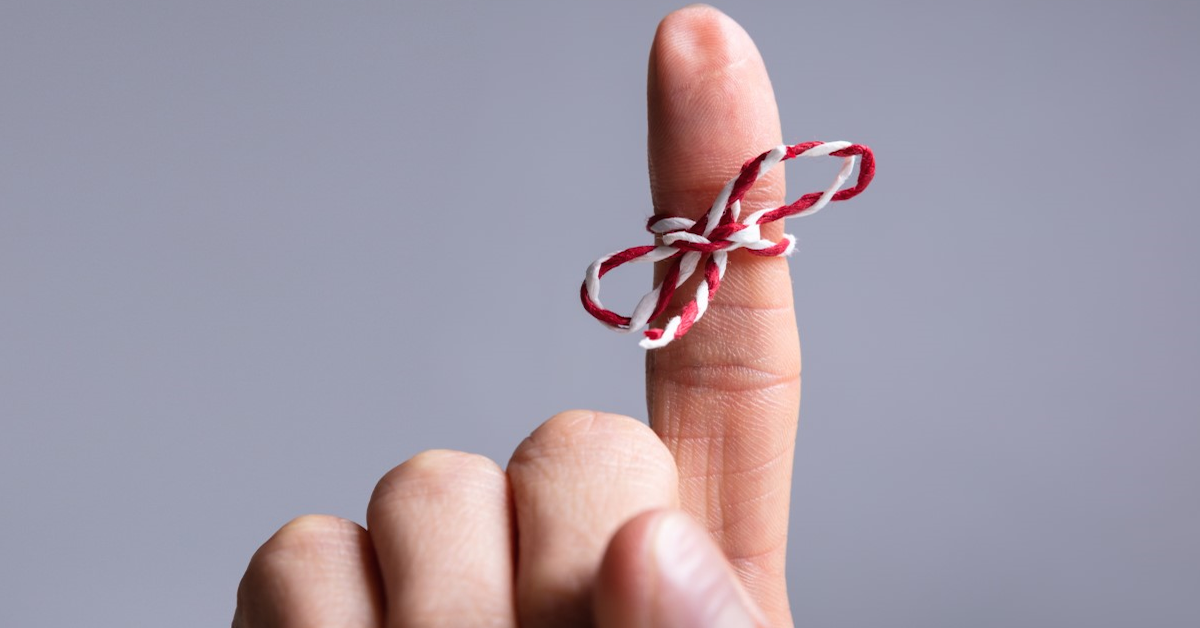What was the most recent trigger that sent you on a path to form a new habit? Something said at a performance review? A trip to the doctor or dentist? Noticing someone else experiencing the benefits of a healthy habit? Then how long were you able to hold onto that habit? One day? A week? Two? Just as old habits are hard to break, creating new ones can also be challenging. So how do we form new habits that stick?
Be deliberate and realistic.
Some of us find ourselves motivated to do it all at once: eliminate multitasking, do away with procrastination, communicate more effectively, check emails less frequently, maintain a zero inbox, take breaks periodically, etc. But starting too many changes at the same time is a recipe for failure. Pick the most important item. Make that a surefire habit, and then revisit your wish list to tackle the next item.
Start small.
If you want to take up running, you probably wouldn’t run a marathon the first time you lace up your running shoes. You would start small and then increase your runs incrementally over time. Likewise, we need to break down our goals into reasonable, bite-size chunks. For example, to eliminate multitasking, start by setting a timer for 10 minutes and staying on task until it rings. Saying you will not multitask for an entire day on your first try would be really tough and challenging to maintain. Whereas starting small (10 minutes/day) and then adding 5-10 minutes every day will be more palatable to your nervous system and have more lasting effects.
Avoid negative triggers.
99U shares some interesting advice:
“…vacations are a prime time to form new habits or break old ones. A new environment means a clean slate of all the cues that trigger ingrained habits, and that means room for you to form new ones. Charles Duhigg, author of The Power of Habit, explained why in an interview with NPR’s Fresh Air with Terry Gross: “If you want to quit smoking, you should stop smoking while you’re on a vacation — because all your old cues and all your old rewards aren’t there anymore. So you have this ability to form a new pattern and hopefully be able to carry it over into your life.”
Be specific.
If you want to communicate with more regularity, spell out specific situations for deploying that intention and measuring yourself. Decide to send meeting minutes within 24 hours of each meeting, to provide a project update every Friday at noon, or to make at least one remark at every meeting you attend. When you can play the habit out like a movie in your mind’s eye, then you’re on the right track.
Rationally acknowledge losses.
Focusing on the things you’ll gain from a new habit happens naturally. However, if you don’t also acknowledge the losses you’ll experience, you might subconsciously hold yourself back. Sending out a project update every Friday at noon, for instance, may have drawbacks. It may compete with more important work you want to complete in order to have a restful weekend. It puts you in the office until noon when the food lines are longer on the day you typically eat out. This strict deadline will also do away with any flexibility you’ve enjoyed in turning them in whenever it was convenient. These losses are real.
Deliberately choose wins.
Once you’ve recognized and mourned the losses, then you rationally and deliberately choose the wins that got you excited about the habit in the first place (or change the specifics to ensure the wins outweigh the losses).
Give your brain a target.
You’re two to three times more likely to succeed if you put your habit into “if or when/then language”. It gives the brain a target.
Examples:
- If I’m in a meeting, then I’m going to make a remark before three quarters of the meeting has lapsed
- If it’s Monday @ 9am, then I am conducting a :60 solo planning session
- The last thing I do before I leave the office is identify the first thing I’m going to work on the next business day
- When my watch beeps to indicate an hour has passed, then I drink my water
- When I wake up Saturday morning, I turn off my work phone
- After I spend :75 on the most important task of the day, I reward myself with a cup of coffee while sifting through emails
The efforts of a new habit must be deliberate and obtainable, with fun wins and a bit of grace for bumps in the road. What trick will you use to create your next new habit? Let us know in the comment section below.



